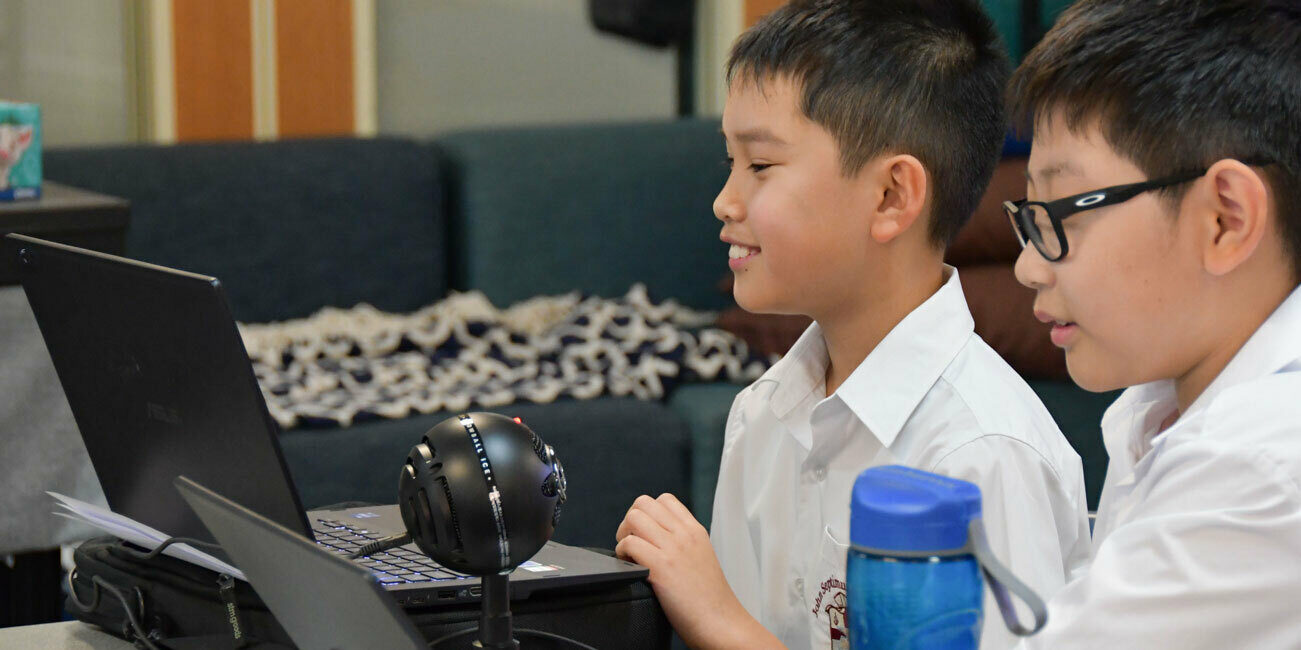

Little Voices, Big Conversations
Primary School Podcasting at
John Septimus Roe Anglican Community School
At John Septimus Roe Anglican Community School (JSRACS), a unique academic extension program allows students to explore the world of podcasting, and their voices are making a powerful impact.
As part of a broader enrichment initiative that includes mathematics competitions, public speaking, and creative writing, the podcasting program has provided Year 6 and 7 students with the opportunity to create content from the ground up. Under the guidance of teacher and former journalist Miss Phillips, students are invited to develop their ideas, conduct interviews, edit audio, and publish their podcasts.
Miss Phillips, who previously worked as a video journalist for The West Australian, explains that podcasting was chosen over a video format for the program initially because to make good video content, you need first to be able to produce good audio. Students are treated as real-world media creators. They choose topics ranging from politics to true crime to student life and are encouraged to work independently or in pairs. They identify a target audience, develop interview questions, research their subjects, and approach interviewees themselves with minimal guidance.
The projects produced have been wide-ranging and thought-provoking. One student team, fascinated by true crime, investigated the Claremont serial killer case and secured an interview with journalist and author Tim Clarke. Another group reached out to politicians in the lead-up to the WA state election, eventually interviewing MP Dr Anne Aly about her hopes for the future of children in Western Australia.
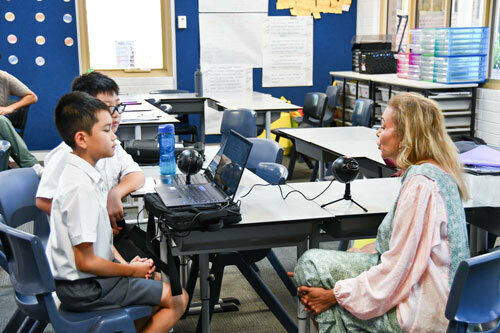
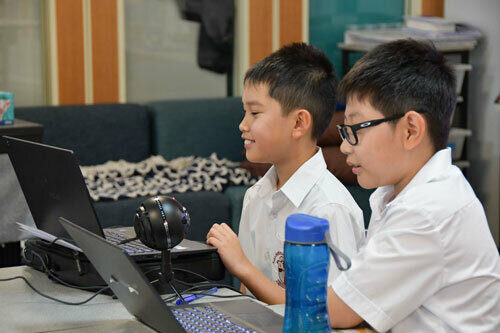
Other students explored more personal subjects, including the transition from primary to secondary school, and interviewed teachers about their fascinating past careers in the police force and military.
Not every pitch unfolded exactly as planned, some guests were unavailable, and projects had to be adjusted on the fly. But these challenges were seen as valuable lessons in flexibility, preparation, and persistence.
The technical learning has also been significant. Students were introduced to the production process: recording, editing, using professional software, sourcing audio responsibly, and applying copyright and media law principles. As they grew more confident, many students explored additional podcast episodes, eager to keep telling stories that mattered to them.
A standout moment of the term was a visit to community radio station RTRFM, where students toured the studio and experienced live broadcasting firsthand. This excursion reinforced the real-world relevance of their new skills.
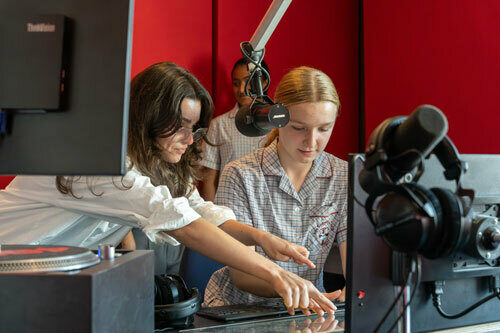
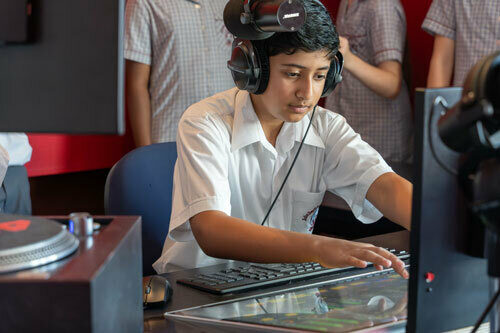
One student reflected, ‘Podcasting taught me how to speak more fluently and confidently. It helped me speak more clearly into a microphone and helped me think about what I’m saying when I am talking, so I’m not stuttering or hesitating.’
For other schools considering a similar program, Miss Phillips encourages them to give it a go. She says, ‘Students are tech-savvy and love trying new tech and figuring it all out.’
At JSRACS, these ‘little voices’ are becoming confident communicators, thinking critically, collaborating effectively, and finding their place in the conversations that shape our world.
Listen to the student-created podcasts on the JSRACS Spotify channel: shorturl.at/HqCyU